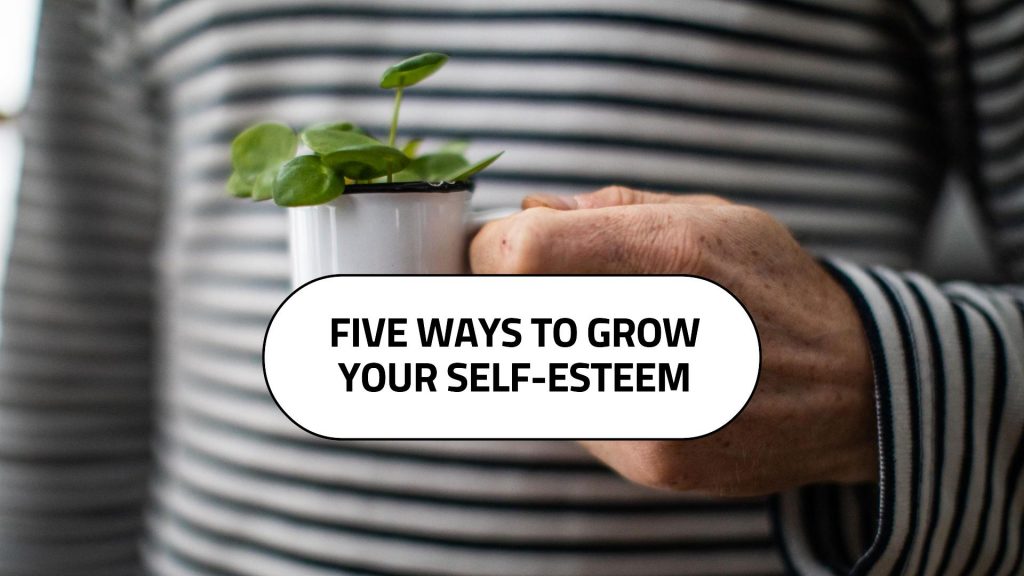
I was confident on my understanding of self-confidence, until a friend asked how it differs from self-belief and self-esteem. Are they interchangeable, or are there distinct things we can learn from their meanings to help us grow?
As with all good mental health concepts there are overlaps, as demonstrated in the Cambridge Dictionary’s definitions:
- Self-belief is trusting in your own abilities
- Self-confidence is the belief that you can do things well and that other people respect you
- Self-esteem is the belief and confidence in your own ability and value
That’s why it’s possible to have self-confidence, which provides the ability to overcome challenges, while at the same time experiencing low self-esteem, which is intrinsically linked to how we perceive ourselves.
I’m confident in my work, for example, but the low value I attribute to myself in other areas of my life – such as worries about how I look, anxiety that I’ve said the wrong thing or shame around my past – can sometimes feel insurmountable.
Low self-esteem can be influenced by how we’ve been made to feel during past experiences or societal pressure we place on ourselves to meet unrealistic expectations.
Perfectionism is a false economy
Perfectionism is often positioned as desirable, but it has major ‘swan energy’. The person looks graceful above water, but beneath the surface they’re chaotically pedalling to achieve success while those around them are completely unaware of the physical, mental and emotional cost they’re expending. It’s demanding, and the rewards get fewer and further between.
In counselling, we occasionally refer to a concept called ‘good enough mother’, developed by psychoanalyst Donald Winnicott in the early 1960s, to help clients reframe their expectations. In his original work, it served to remove the burden of parental perfection by allowing caregivers to respond to their children in a suitable timeframe. Children may cry for a short time, but their needs will be met. Not immediately, but soon. This type of care remains good enough.
So, what can we learn from this outside of a parenting context?
In essence, try.
With all the will in the world, our best efforts cannot apply to all situations, yet ‘try your best’ is a common throwaway line we pass on that leaves a mark that only our best is good enough.
I’ve got news for you – you are good enough
The reality is, sometimes we’ll give our all and still not make the grade. And that’s OK. It’s a reminder we must not see events – such as exams, interviews or dates – as linear. We must be able to accept mistakes without labelling ourselves as failures.
So, what can you do to become more comfortable with yourself and overcome a lack of self-esteem?
Five ways to boost your self-esteem:
- Be aware when you’re talking negatively about yourself. Stop, recognise it’s not based on fact and replace it with a positive statement
- Talk to people you trust to take yourself away from your current mindset
- Reset your perspective by reviewing your diet, exercise, sleep and use of social media
- Try something new and draw upon this experience to support how you approach other tasks
- Celebrate starting the journey, not just the destination, by recognising the small wins
By improving your self-esteem, your self-confidence will also blossom – strengthening your belief in what you have, and are yet to, accomplish.
It’s important to recognise that struggling in any of these areas may not feel problematic, but if left to build over time it could start to impact your quality of life – and this is something you might find helpful to explore with a counsellor who can even equip you with practical tools to manage, known as cognitive behavioural therapy (CBT).
The Fountain Therapy Trust offers face-to-face or online low-cost, affordable long-term counselling to support people with challenges such as perfectionism; imposter syndrome; self-confidence; and self-esteem.
If you’re based in South West London and want to find out more about The Fountain Therapy Trust’s service, complete our contact form or speak to our team for more details.
Donna is an integrative counsellor at The Fountain Therapy Trust, having recently qualified through a part-time training programme at Kingston College.
